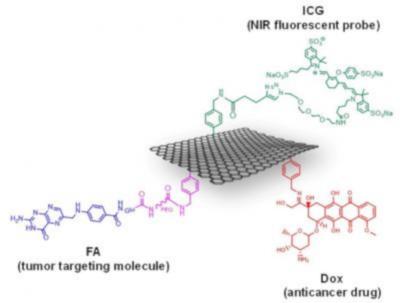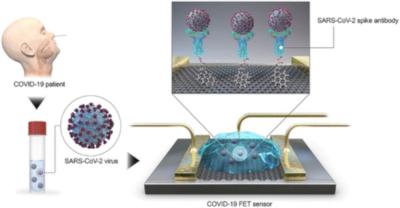
by MBF Admin | Apr 28, 2020 | 2D materials, Aerospace, AGM, Angstron Materials, Audio, Development, Graphene applications, Investment, Medicine, Products, Research, Technical / Research
Scientists from Japan Advanced Institute of Science and Technology (JAIST) and Centre national de la recherche scientifique (CNRS) and their colleagues have used multi-functional graphene to develop a medical technology that allows for targeted cancer treatment at the...
by MBF Admin | Apr 22, 2020 | 2D materials, Aerospace, AGM, Angstron Materials, Audio, Development, Graphene applications, Investment, Medicine, Products, Research
Researchers at Ben-Gurion University of the Negev in Israel are developing a new type of graphene-enhanced air-filter that self-sterilizes and decontaminates based on water filtration technology. The new nanotechnology is based on laser-induced graphene (LIG) water...

by MBF Admin | Apr 21, 2020 | 2D materials, Aerospace, AGM, Angstron Materials, Audio, Development, G-FET, Graphene applications, Graphene Sensors, Investment, Medicine, Products, Research, Technical / Research
Korean researchers have developed a graphene-based field-effect transistor-based biosensor that detects SARS-CoV-2 in nasopharyngeal swabs from patients with COVID-19, in less than one minute.Currently, most diagnostic tests for COVID-19 rely on a technique called...

by MBF Admin | Apr 21, 2020 | 2D materials, Aerospace, AGM, Angstron Materials, Audio, Development, Graphene applications, Graphene Sensors, Investment, Medicine, Products, Research, Technical / Research
Grolltex has teamed up with Sanford Burnham Prebys Medical Discovery Institute to develop a graphene-based virus testing platform to help combat COVID-19. The project involves using hand held reader units and disposable plastic testing chips designed for U.S. points...
by MBF Admin | Mar 25, 2020 | 2D materials, Aerospace, AGM, Angstron Materials, Audio, Development, Graphene applications, Graphene Ink, Graphene investing and financials, Graphene Sensors, Investment, Medicine, Products, Research
A University of Sussex research team, led by Professor Alan Dalton, has received new funding of £1 million from private company Advanced Material Development, to pursue their research into graphene and other nanomaterials.The team will conduct research into...
by MBF Admin | Mar 25, 2020 | 2D materials, Aerospace, AGM, Angstron Materials, Audio, Development, Graphene applications, Graphene DNA Sequencing, Graphene Sensors, Investment, Medicine, Products, Research, Technical / Research
Researchers at the University of Illinois at Urbana-Champaign have found that crumpling graphene makes it more than ten thousand times more sensitive to DNA by creating electrical “hot spots”. This discovery could assist in addressing a known issue of...




